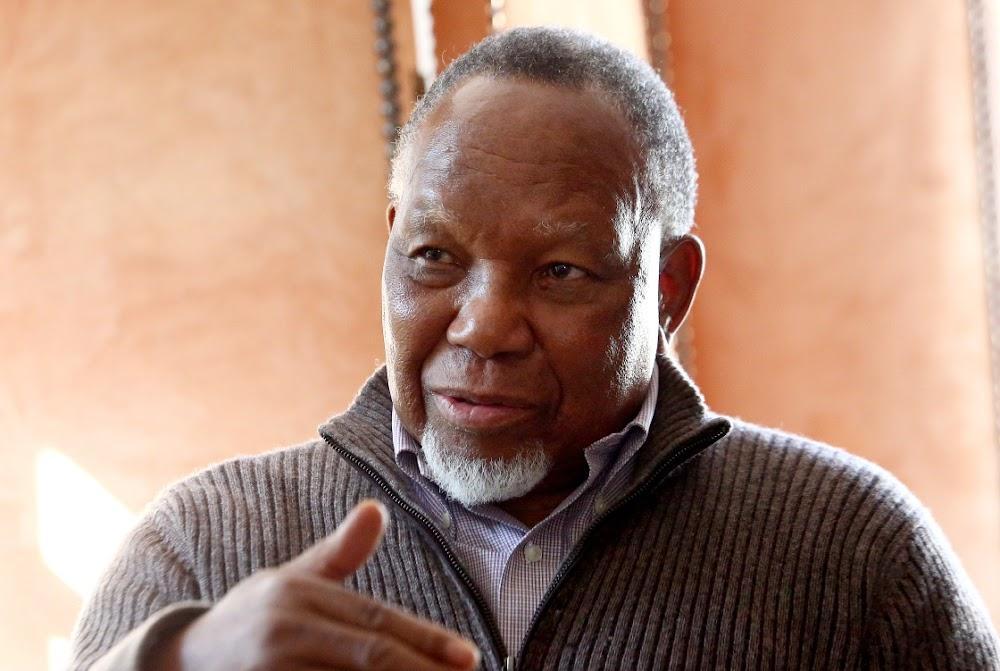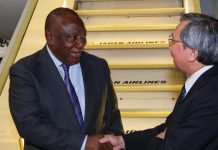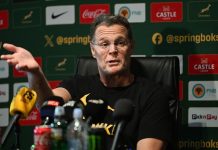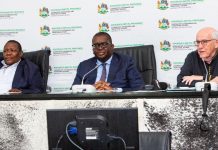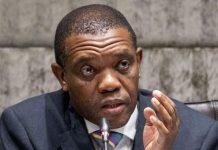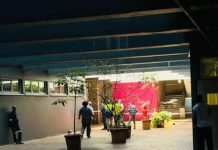Africa-Press – South-Africa. Former president Kgalema Motlanthe has called for any dialogue about the country’s challenges to be inclusive.
Speaking to the Sunday Times this week, Motlanthe, whose foundation was not part of the dialogue process, said: “Even Mandela said you don’t negotiate with your friends, but with your adversaries. If you want synergy, you engage.
“In the lead-up to 1994, during the talks about talks, you had to include everyone because the weight of each interested party could only be determined by an election. Now there’s a plethora of organisations. Because you cannot attach weight on them, it has to be open to everyone.”
Referring to his foundation’s non-participation in the dialogue process, he said “We work in accordance with the deeds of trust and the foundation’s work. Some of the foundations are political. We are as well, but we don’t have a programme to pursue political projects.”
Asked how he saw the process unfolding, Motlanthe said: “We will see how many manageable topics they are going to be able to deal with. It’s going to be quite a tall order to create consensus. Some are saying, for instance, that the government is a failure and that if they get a cross-section of participants the next step is to call for elections.
“Given South Africa’s problems, sometimes you do not need a dialogue; you may need a referendum on issues.”
Motlanthe said a forum such as the dialogue — “aimed at facilitating debate and decisions” — required “a lot of time and resources and patience”.
On whether there should be red lines for who participates, or on topics to be discussed, Motlanthe said that while “all comers should be welcomed”, it was important that the objectives around which citizens were mobilised were clarified.
Motlanthe said he had been invited to the convention but had not attended due to other commitments.
Last week Mbeki wrote a scathing letter to the national dialogue’s organisers, declining an invitation to attend its first convention this weekend.
In a letter signed by the chair of the Thabo Mbeki Foundation, Geraldine Fraser-Moleketi, the foundation said the preparatory task team had not convened this weekend’s convention.
“With due respect to those who will attend the forthcoming meeting at Unisa, these individuals will have no possibility whatsoever to claim to represent any of the constituencies to which we have referred and will be unable to engage meaningfully on the challenges facing our country,” the letter said.
“It is exactly for this obvious reason that the meeting at Unisa cannot, as you claim for some reason, mark the formal kickoff of an inclusive, citizen-led process to chart a shared vision for South Africa’s future. In this regard, we must state without any equivocation that it is misleading to describe the meeting to be held at the Unisa campus in Tshwane as ‘The First National Convention of the National Dialogue’, and an unethical effort to mislead the people of South Africa.”
These words triggered a response from the ANC and its stalwarts. ANC national chair Gwede Mantashe said Mbeki should support Ramaphosa. “When you are a leader, the worst thing you can do is to undermine a person who takes over from [you] and not give space. When you are a leader, you have had your chance, and there is a new leader; support that leader.”
ANC stalwart Sophia De Bruyn, who supports the national dialogue, said the process will bring value and trust by addressing societal issues, including crime and inequality. She said she believed that South Africans must, as patriots, stand together to find solutions.
“I have a lot of hope,” she said. “I am very clear that this dialogue will meet its objectives, although I know it won’t come out with a complete set of objectives. There are the marginal people who have been disrespected or have not been given a chance, and have not been invited. Others were invited, but they turned it down for their own egos. But I think the future discussions and the bigger convention will give those ones who did not take part an opportunity.”
De Bruyn said individuals should not be complacent, arguing that they should rather be raising their voices in the convention by participating towards its outcomes.
She said South Africans should be careful about the amendment of the constitution when engaging in the dialogue. She said the withdrawal of the DA from the dialogue was troubling, adding that she believed Ramaphosa could still sway the DA to rejoin the process.
“What we don’t do is to interrogate the constitution to work for us. I’m not sure at this point if the constitution should be changed, but if there is consensus that it should be changed, it should be very carefully looked at. We should be careful about changing the constitution. We should be wary and take care to do things properly. If this opportunity misses us about not being careful about how we go about changing the constitution, then we are doomed.”
Speaking at the close of the convention’s second day yesterday, Lindiwe Mazibuko, one of the deputy chairs of the national dialogue’s eminent persons group, said they have witnessed “thriving and alive spirits” in its first two days.
Mazibuko said: “Over the past two days, we have witnessed a spirit so alive and thriving in these halls; those who have stepped up to lead, young voices reminding us to be bolder, and communities claiming their role in shaping our future.”
She said the inaugural convention was never intended to provide all the answers. “It is a foundational step, setting the agenda for the long journey ahead. It is a powerful example of inclusivity and the beginning of a process that truly belongs to citizens in every community.”
For More News And Analysis About South-Africa Follow Africa-Press

